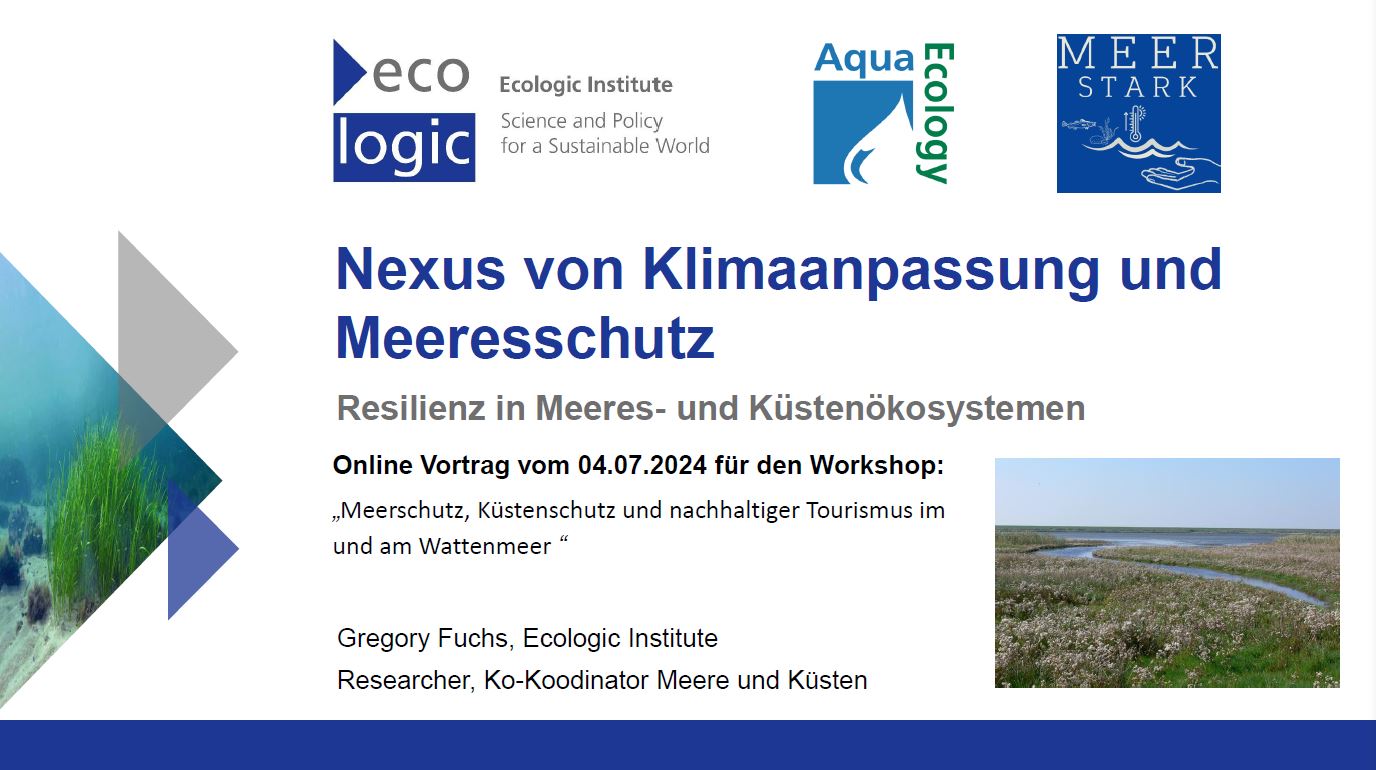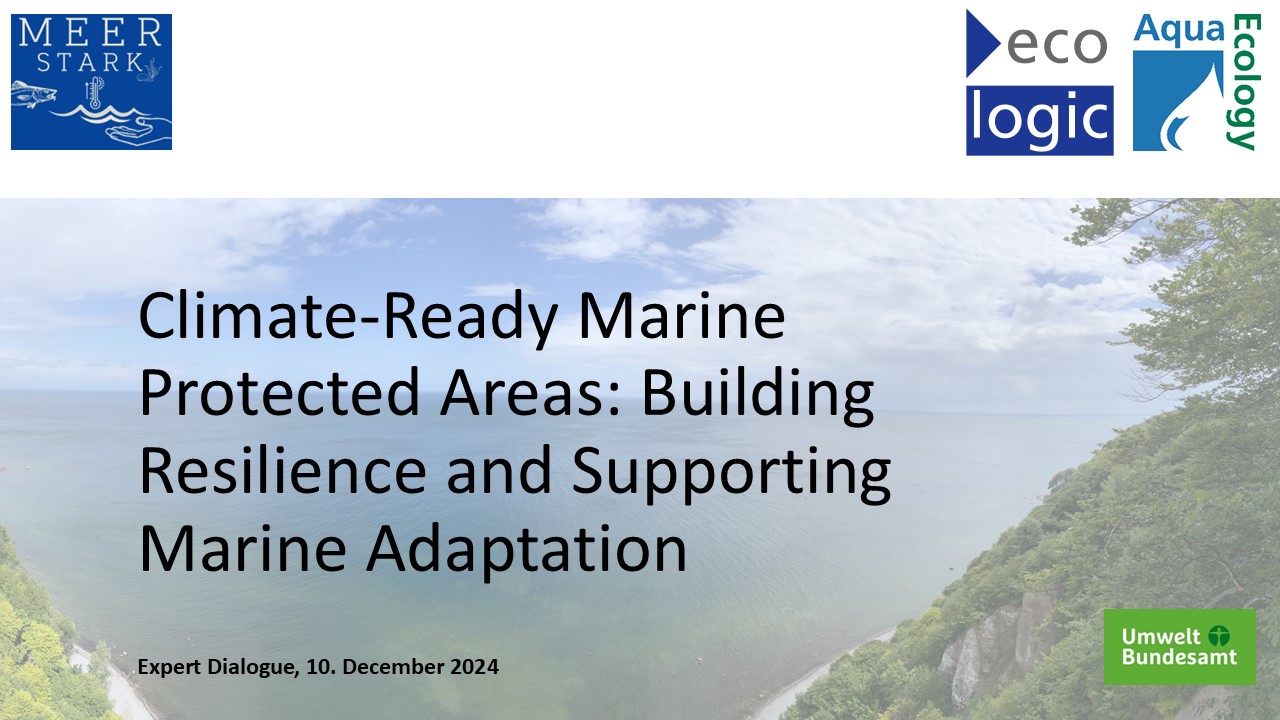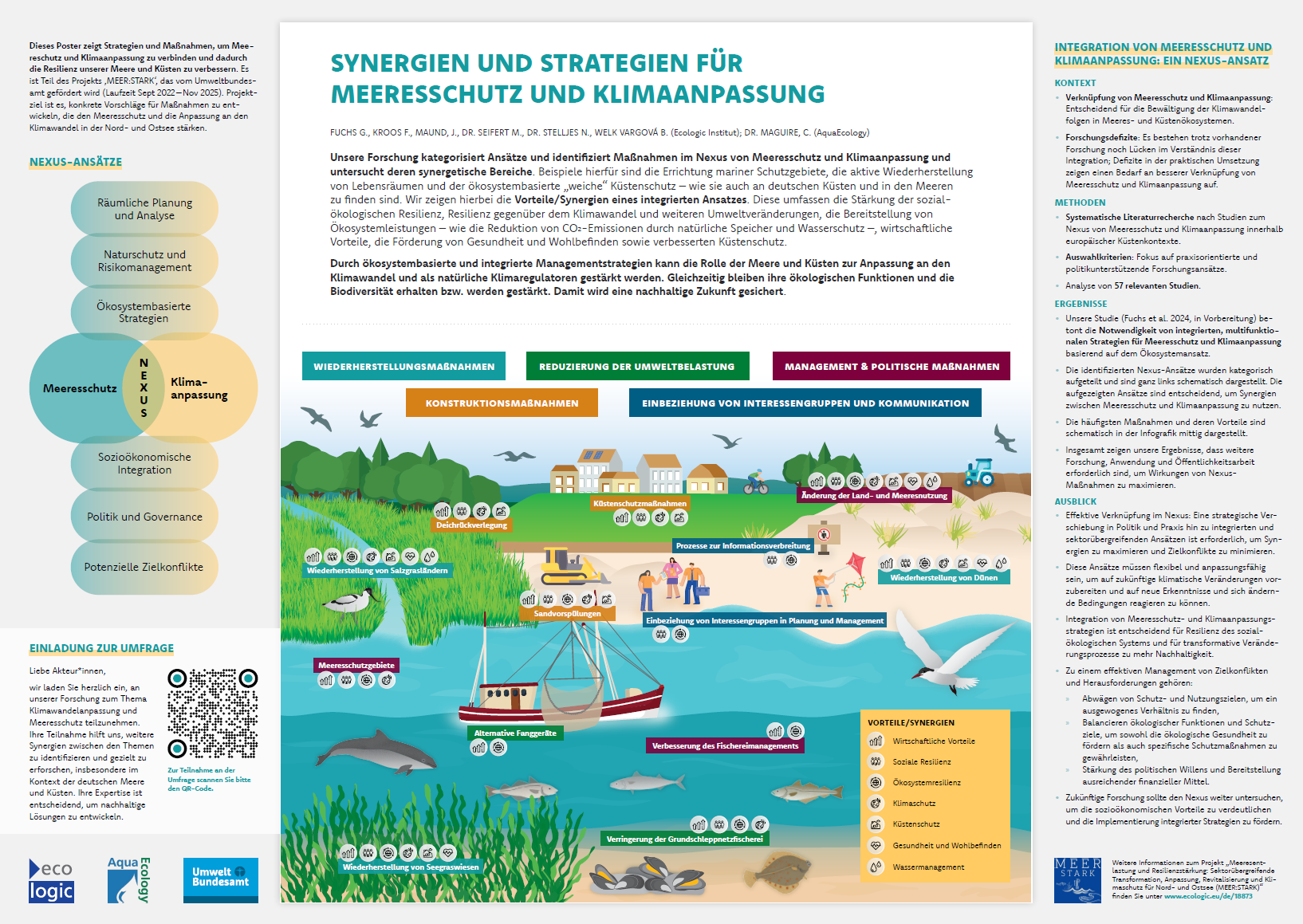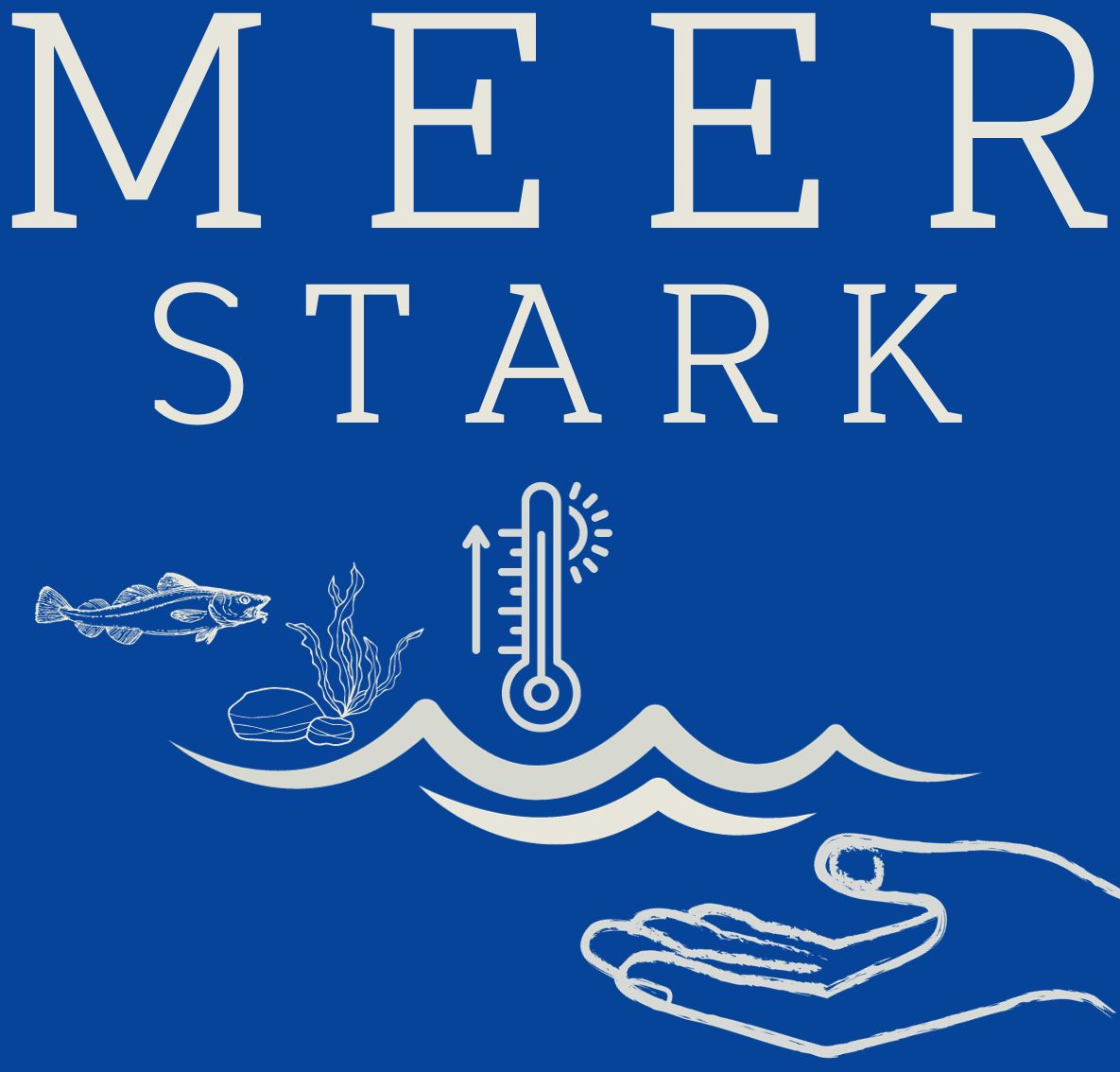© Ecologic Institute, 2025
Bridging Science and Policy – Exploring the Marine Protection and Climate Adaptation Nexus
MEER:STARK Final Event
- Event
- Date
-
-
- Location
- hybrid | Berlin, Germany
- Speaker
The MEER:STARK Final Event, titled “Bridging Science and Policy – Exploring the Marine Protection and Climate Adaptation Nexus” took place on 3rd and 4th of November 2025 at Ecologic Institute in Berlin. Around 10 experts joined on site and 20 more participated online, with the second day held as a focused in-person session. The workshop brought together experts from science, policy and practice to reflect on key findings of the MEER:STARK-Project and further develop practical recommendations for implementation and legacy.
The overarching goal of MEER:STARK has been to strengthen the nexus between marine conservation and climate adaptation at both national and European levels. Building on a series of thematic workshops held throughout the project, MEER:STARK focused on three core elements where human pressures, ecosystem vulnerability, and climate impacts most strongly intersect: eutrophication, nature-based coastal protection, and climate-ready Marine Protected Areas (MPAs). These themes reflect both persistent management challenges and key opportunities for policy coherence across governance levels and between land and sea. By refining strategies in these areas, MEER:STARK advances integrated approaches to reduce pressures, protect and restore ecosystem functions, and thus strengthen coastal and marine resilience to climate change.
Day 1 – Building the Nexus
The opening day revolved around MEER:STARK’s guiding question: How can marine protection and climate adaptation work together rather than compete?
Drawing on examples from the North and Baltic Seas and beyond, participants traced the ecological and institutional links between nutrient management, coastal resilience, and protected-area planning, laying the groundwork for the thematic sessions that followed. After welcoming words from the Federal Environment Agency (UBA), a lively discussion explored the need to overcome sectoral fragmentation, align climate and biodiversity goals, and connect governance levels across land and sea.
In the afternoon, impulse presentations introduced the three main MEER:STARK themes:
- Eutrophication: discussions stressed the importance of source-to-sea management, stronger stakeholder engagement, and trust-based collaboration with the agricultural sector.
- Nature-based coastal protection: case studies from projects such as METASCALES, RestCoast, and the World Bank’s Global NBS Programme demonstrated how hybrid and ecosystem-based measures can strengthen coastal resilience and deliver a range of co-benefits.
- Climate-ready MPAs: the final session examined how MPAs can adapt to changing ocean conditions by integrating climate data, strengthening ecological connectivity, and ensuring social legitimacy through co-management.
Day 1 concluded with a shared understanding that effective marine protection and climate adaptation in coastal contexts not only require cross-sectoral but also cross-national collaboration, and long-term financing as well as coordinated monitoring to scale pilot-projects into lasting practices.
Day 2 – From Insights to Action
Day 2 built on these insights and jointly translated them into actionable, expert-validated recommendations. An opening keynote by HELCOM and the Protect Baltic project presented the latest findings on the status, expectations, and realities of Baltic Sea MPAs, sparking an intense debate on governance challenges, data gaps, and how to embed climate considerations into marine and coastal policies. Subsequent working sessions focused on refining the MEER:STARK recommendations for the three focal areas:
- Improving integration of marine protection, climate adaptation, and climate-smart spatial planning,
- Strengthening measures to reduce eutrophication, and
- Scaling up nature-based and hybrid solutions for coastal protection.
Looking Ahead – The Legacy of MEER:STARK
In the final plenary, participants looked ahead and reflected on the legacy of the project, outlining how MEER:STARK’s findings will continue to inform marine and climate policy processes and frameworks.
Beyond its analytical outputs, MEER:STARK was recognised for building bridges between policy fields and practical realities and for supporting cooperation across projects and sea basins.
Participants and partners agreed to disseminate the workshop results through the final project report and a joint planned publication, ensuring that MEER:STARK’s recommendations reach policy-makers and practitioners across Germany and the EU.
The group also committed to carry the project’s momentum forward through existing networks such as the MPA Community Network, helping to embed MEER:STARK’s insights into future initiatives.
All presentations can be found below.








